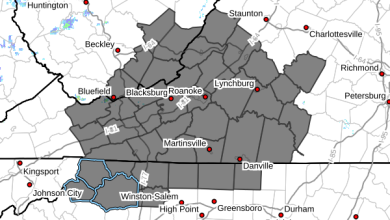Last Updated on February 8, 2019 2:23 pm
Appalachian Regional Healthcare System (ARHS) has put visitation restrictions in place at all of their locations due to flu cases increasing in the High Country and across North Carolina.
ARHS is asking people under age 18, as well as those who are sick or have been exposed to respiratory illness, to refrain from visiting friends or family at Watauga Medical Center, Cannon Memorial Hospital and The Foley Center as a result of the continued increase in flu and influenza-like illnesses.
The medical team may make exceptions on a case-by-case basis for siblings of newborn babies and families of hospice or end of life patients.
In a statement, ARHS says that they know limiting visitation is an inconvenience for families with patients in the hospital, however it is vital that every precaution is there to protect patients, staff and visitors. ARHS infection control specialists will continue to monitor influenza activity with the Health Department and will assess when restrictions can be lifted.
Below are suggestions and tips from ARHS.
What to do when you visit
Ensure that you are healthy — free from fever, cough, colds or stomach virus symptoms.
Wash your hands often with soap and water, especially after you cough or sneeze. Alcohol-based hand cleaners are also effective.
Visitors may be asked to wear protective clothing or a mask in certain areas.
Tips to avoid the flu
Flu viruses spread mainly from person to person through coughing or sneezing. Sometimes an individual may catch flu by touching an object infected with the virus and then touching the eyes, mouth, or nose. Listed below are several things you can do to prevent catching or spreading the flu.
Wash your hands often with soap and water, especially after you cough or sneeze. Alcohol-based hand cleaners are also effective.
Avoid touching your eyes, nose or mouth. Germs spread this way.
Try to avoid close contact with sick people.
Cover your nose and mouth with a tissue when you cough or sneeze. Throw the tissue in the trash after you use it.
If you don’t have a tissue, cough or sneeze into your upper sleeve, not into your hands.
If you get sick with flu, stay home from work or school and limit contact with others to keep from making them sick.
Get the recommended seasonal flu vaccine.
Symptoms of flu
Recognizable Symptoms Include:
Fever
Cough
Sore throat
Body aches
Chills
Fatigue
Runny or stuffy nose
Headache
Diarrhea
Vomiting
Most people recover from flu after about a week without lasting effects.
When to seek care
Seek emergency medical care if you or a family member has any of these symptoms:
Difficulty breathing or shortness of breath
Pain or pressure in the chest or abdomen
Sudden dizziness
Confusion
Severe or persistent vomiting
Flu-like symptoms that improve, but then return with fever and worsening cough
In babies, bluish or gray skin color, lack of responsiveness or extreme irritation
Appalachian Regional Healthcare System is working diligently to prevent the spread of flu and appreciates any assistance the public can provide. For more information about the flu, visit www.flu.gov/ or www.cdc.gov/flu.
















